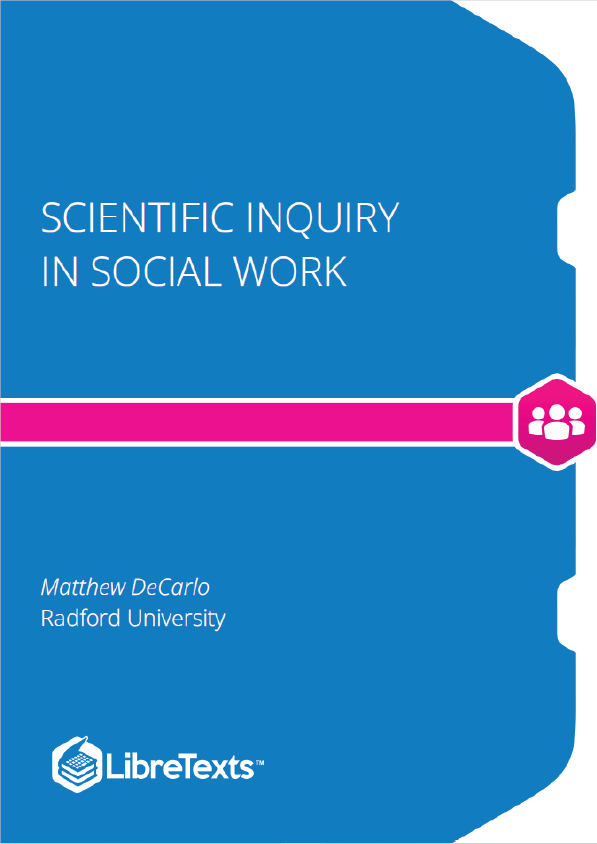As an introductory textbook for social work students studying research methods, this book guides students through the process of creating a research project. Students will learn how to discover a researchable topic that is interesting to them, examine scholarly literature, formulate a proper research question, design a quantitative or qualitative study to answer their question, carry out the design, interpret quantitative or qualitative results, and disseminate their findings to a variety of audiences. Examples are drawn from the author’s practice and research experience, as well as topical articles from the literature. The textbook is aligned with the Council on Social Work Education’s 2015 Educational Policy and Accreditation Standards.
How do social workers know the right thing to do? It’s an important question. Incorrect social work actions may actively harm clients and communities. Timely and effective social work interventions further social justice and promote individual change. To do make the right choices, we must have a basis of knowledge, the skills to understand it, and the commitment to growing that knowledge. The source of social work knowledge is social science and this book is about how to understand and apply it to social work practice.
Imagine you are a social worker in an urban food desert, a geographic area in which there is no grocery store that sells fresh food. Many of your low-income clients rely on food from the dollar store or convenience stores in order to live or simply order takeout. You are becoming concerned about your clients’ health, as many of them are obese and say they are unable to buy fresh food. Because convenience stores are more expensive and your clients mostly survive on minimum wage jobs or Supplemental Nutrition Assistance Program (SNAP) benefits, they often have to rely on food pantries towards the end of the month once their money runs out. You have spent the past month building a coalition composed of members from your community, including non-profit agencies, religious groups, and healthcare workers to lobby your city council.
How should your group address the issue of food deserts in your community? What intervention do you suggest? How would you know if your intervention worked?
You are a social worker working at a public policy center focused on homelessness. Your city is seeking a large federal grant to address the growing problem of homelessness in your city and has hired you as a consultant to work on the grant proposal. After conducting a needs assessment in collaboration with local social service agencies and interviewing people who are homeless, you meet with city councilmembers to talk about your options to create a program. Local agencies want to spend the money to build additional capacity at existing shelters in the community. They also want to create a transitional housing program at an unused apartment complex where people can live after the shelter and learn independent living skills. On the other hand, the clients you interview want to receive housing vouchers so they can rent an apartment from a landlord in the community. They also fear the agencies running the shelter and transitional housing program would dictate how to live their lives and impose unnecessary rules, like restrictions on guests or quiet hours. When you ask the agencies about client feedback, they state that clients could not be trusted to manage in their own apartments and need the structure and supervision provided by agency support workers.











